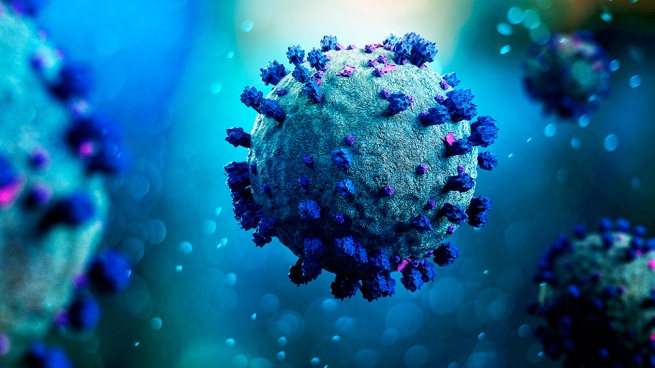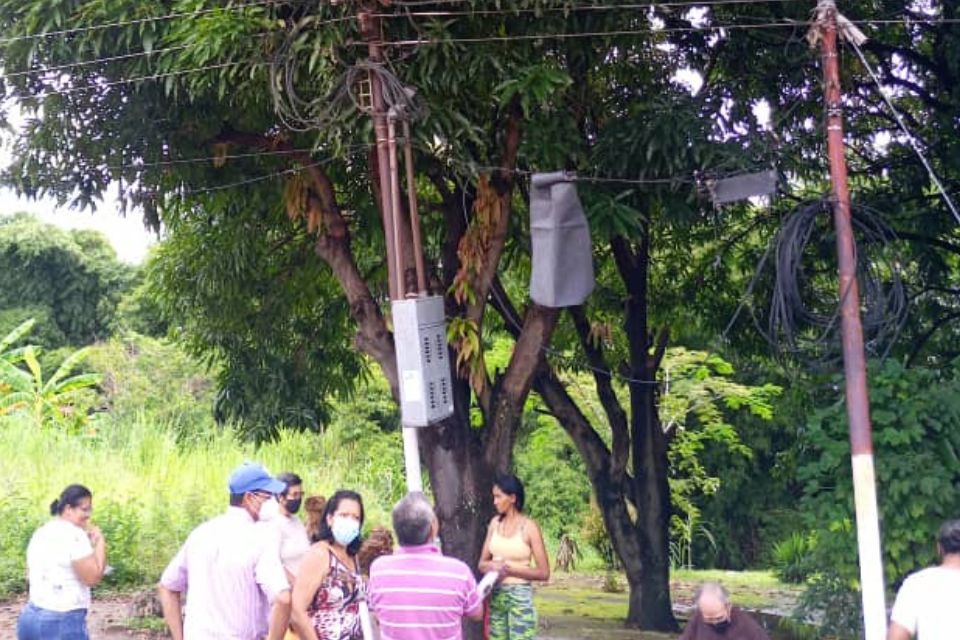Two and a half years after the SARS-CoV-2 outbreak, the experimental treatments were put aside and currently to face this disease, especially in moderate and severe patients, in Argentina they are used corticosteroids, anticoagulants in low doses and if necessary and as a last option Mechanical Respiratory Assistance (MRA).
The medical community is based on the parameters obtained from the scientific evidence gathered after having suffered different stages of Covid-19 – generated by its variants – since the declaration of a pandemic on March 20, 2020.
Fernando Rios, secretary of the board of directors of the Argentine Society of Intensive Therapy (Sati) reflects in dialogue with Télam-Confiar “at the beginning of the pandemic there was a diversity of treatments that were launched in the context of an unprecedented health emergency such as using antiretroviral drugs for HIV, or using hydroxychloroquine that in the course of the months and as the studies were carried out, their uselessness was demonstrated and they were left aside”.
“What did have evidence -he points out- are the corticosteroids, which is a very cheap and effective treatment. It really has clear evidence in the early management of all patients who need oxygen therapy. It is a universal treatment, anywhere in the world one has corticosteroids, it is very good news”.
“It has been studied and of the corticosteroids, the most useful drug is dexamethasone” specifies the intensivist doctor, to which he adds “what corticosteroids do a little is slow down the immune response”.
“The disease caused by SARS-CoV-2 is complex, there are direct viral effects and cell damage caused by viral replication and there is also cell and tissue damage caused by the immune reaction generated by the virus in the body. Corticosteroids would attenuate this immune reaction that when it is exaggerated, it generates as much or more damage than the virus itself and allows the patient to improve and manage to get ahead of the disease in better conditions”, he details.
Asked about the use of anticoagulants responds “you have to be careful because the same drug applied in different doses has different effects. It was used in high doses and it was shown that it is not good, it is not useful”; meanwhile, he urges the medical community to continue with the standard procedure: “Administering heparin in low prophylaxis doses to avoid thrombosis is what one does in every critical patient, so we must continue with the standard as we have been doing.”
“The artificial respirator is indicated when what we call acute respiratory failure appears, that is, when this physiological function of breathing does not reach certain basic levels to guarantee vital functions, because when oxygen drops or CO2 (carbon dioxide) accumulates the brain, the heart, the kidneys fail too much”, he describes.
“The population that has severe forms of Covid and we see in the ICU rooms (Intensive Care Unit) has changed. They are unvaccinated people and/or elderly people with diseases and situations that put them at an immune disadvantage, patients undergoing chemotherapy, a disease such as leukemia, transplant patients or dialysis patients,” says Ríos.
Antivirals and monoclonal antibodies
For its part, José María Miró, consultant at the Clinical Hospital of Barcelona, Spain, emphasized the experience they currently face based on the premise that “treatment has moved to the community.” This, in reference to patients with mild conditions in which hospitalization or admission to intensive care can be avoided.
Miró presented “Treatments for Sars-Cov-2: where are we today” during the XIX Scientific Symposium of Fundación Huésped, held weeks ago in Buenos Aires.
“The treatment of the hospitalized patient is of an advanced patient, who already has a Covid disease and who has a significant inflammatory response. We know that we can give remdesivir for five days, also monoclonal antibodies, as long as they are effective for the variant that is circulating; We can also give dexamethasone combined with tocilizumab, and heparin in doses and administer low molecular weight heparin. This treatment, which is included in all clinical practice guidelines, has significantly reduced hospitalized patient mortality these two years”, she explained by way of introduction.
“But now the focus of treatment has moved to the community, what we want is that patients with mild infection, who are at risk of being admitted, do not end up hospitalized or in intensive care units, therefore treatment is focused on this phase, it is early treatment, in the first five or seven days of symptoms. We must identify the population that is eligible to receive it. The objective is similar to vaccines, it does not prevent infection but it can prevent serious illness, hospitalization, ”he said in the talk.
In this context, Miró developed that “we have oral antiviral treatments, which administered early, after five or seven days, to a population at maximum risk (elderly patients, with comorbidities or patients with immunosuppressive diseases), are very effective in avoiding hospitalization. Fundamentally we are going to move with three antivirals, the first is the one with which we have more experience, it is remdesivir, its efficacy has been demonstrated in a double-blind clinical trial with placebo financed by American institutes”.
“Molnupiravir, administered in the first five days, pregnant women were excluded in the trial and the results showed a 65% reduction in hospitalization; the other oral antiviral is nirmatrelvir/ritonavir, we must consult the interaction database to see which drugs we should stop to avoid adverse effects”, warned Miró.
Regarding the treatment with the use of monoclonal antibodies, concluded: “Many were very active for the Alpha, Beta, Gamma and Delta variants but with Omicron things have changed; in fact they can be active sotrobimab and evusheld”.











